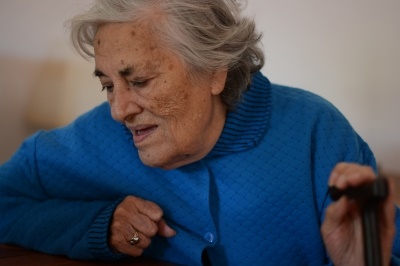 Addiction is a problem at any age.
Addiction is a problem at any age.
However, a younger person’s face is often what people see when asked to think of who is affected most often.
The face of addiction – no matter if it involves drugs or alcohol – is usually not an person who experienced the wisdom of the older generations.
But, as baby boomers move into retirement, there has been an increase in the number of people over the age of 65 who experienced addiction problems.
According to the Substance Abuse and Mental Health Services Administration, a governmental agency whose mission is to reduce the impact of substance abuse and mental illness in the United States, the rate of people between the ages of 65 to 84 admitted to hospitals as a result of prescription medication or illicit drug use increased 96 percent in the past 20 years.
The rate of people 85 and older being admitted increased 87 percent in the same time period.
Over-the-counter medication is often a significant problem for seniors. Whether it’s due to accidental misuse or misuse by choice, there are often complications involved with combining prescription medication and items such as cough medicine.
Misuse of medication leads to complications like stumbling while or falling and the resultant injuries are often seen as signs of old age rather than a symptom of substance abuse.
However, broken bones and general clumsiness may be more than just old age. Families and practitioners treating drug and alcohol abuse in Utah and beyond should consider misuse, and potential abuse, of substances as the cause of the symptoms.
The following are other concerns that should raise red flags:
Difficulty acclimating to retirement. The 9-5 routine can be difficult to break. Going from 50 miles per hour daily to a halt can leave a vacuum in a person’s life. Depression and boredom may result as a retiree makes the transition from the working world.
And this depression can lead to addiction.
Therefore treatment involves addressing both the addiction and the depression that caused that addiction in the first place.
Withdrawing from everyday life. Being retired means an individual is not going to the place they socialize the most. A retiree is left to do their own thing, often alone, and without colleagues to notice if something is out of place.
This loneliness could hide an addiction problem. It is important to keep tabs on retired individuals to make sure something like addiction is not devastating the next chapter in their lives.
An increase in health issues. Falls, dizziness and memory problems are often just passed off as the price of getting older. But, scratch the surface, and an addiction problem may come to light. In fact, abuse of drugs or alcohol may be the more obvious answer.
If you suspect an older loved one has an addiction problem, customized Utah drug rehab is only a phone call away. Contact Alpine Recovery Lodge and let our experts explain how our well-rounded approach to care can address not only the addiction, but also the underlying causes of an elder addiction.
